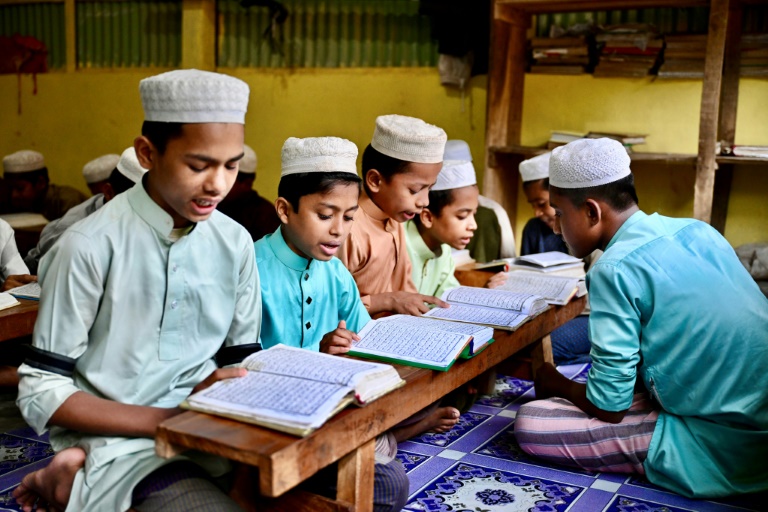A Rohingya refugee shared harrowing accounts of violence and suffering at a recent United Nations conference, emphasizing the ongoing crisis facing the Rohingya community. Maung Sawyeddollah, who fled Myanmar in 2017 along with approximately 750,000 others, described the relentless cycle of violence affecting this predominantly Muslim minority. He presented a photograph depicting the aftermath of a drone attack that killed civilians, stating, “These people were killed in a drone attack by the Arakan Army on August 5, 2024.”
Sawyeddollah, a member of the Rohingya Students Network, asserted that such incidents are not isolated but part of a systematic campaign against the Rohingya people. He questioned, “Where is justice for Rohingya?” The Rohingya have been subjected to decades of persecution in Myanmar, particularly during the military crackdown in 2017, which has led to ongoing legal proceedings at an international level regarding allegations of genocide.
Escalating Conflict in Rakhine State
The situation in Rakhine State remains dire, exacerbated by ongoing conflict between the Myanmar military and the Arakan Army, a predominantly Buddhist ethnic group. Since the military coup in 2021, which deposed the democratic government, the region has seen some of the most intense fighting. Wai Wai Nu, founder of the Women’s Peace Network and a former political prisoner, highlighted the junta’s oppressive tactics. She stated, “The Junta blocks aid, recruits Rohingyas as human shields, and continues systematic oppression.”
Nu further explained that the Arakan Army has adopted similar brutal tactics against the Rohingya, which include “massacre, force recruitment, arson, torture, and sexual violence.” Her testimony was echoed by several UN officials, underlining the unique plight of the Rohingya. Filippo Grandi, UN High Commissioner for Refugees, noted that the Rohingya face not only discrimination and deprivation of rights but also the consequences of being caught in a conflict that is not their own.
Currently, there are approximately 1.2 million Rohingya refugees in Bangladesh, many of whom are grappling with significant reductions in international aid. Grandi pointed out that the humanitarian situation in Rakhine State has sharply deteriorated since November 2023, worsening the living conditions for the Rohingya.
Hope for the Future
Lucky Karim, a refugee who spent six years in a camp in Cox’s Bazar, expressed gratitude for Bangladesh’s hospitality while sharing her hopes for the future. “Our goal is to return to our homeland safely with rights, but how do we get there?” she asked, highlighting the uncertainty faced by many.
UN Special Envoy on Myanmar Julie Bishop warned that the ongoing violence poses an “insurmountable barrier” to the safe return of displaced Rohingya. The humanitarian crisis in Myanmar continues to unfold, as the Rohingya community awaits a resolution to decades of suffering and displacement.
The international community is urged to address these pressing human rights issues, as the Rohingya continue to endure hardships while seeking justice and a safe return to their homeland. The need for comprehensive humanitarian support and a sustainable solution to the conflict in Myanmar remains critical.





































































